I have a multi-module maven project with three modules core, utils and test-utils
Core has the following dependencies definition
<dependency>
<groupId>my.project</groupId>
<artifactId>utils</artifactId>
</dependency>
<dependency>
<groupId>my.project</groupId>
<artifactId>test-utils</artifactId>
<scope>test</scope>
</dependency>
I have added Java 9 module-info.java definitions for all three modules and core's looks like this:
module my.project.core {
requires my.project.utils;
}
However I cannot figure out how to get core's test classes to be able to see the test-utils classes during test execution. When maven-surefire-plugin attempts the test run I get class not found.
If I add a requires my.project.testutils; to core's module-info.java:
module my.project.core {
requires my.project.utils;
requires my.project.testutils; //test dependency
}
Then at compile time I get an error that the my.project.testutils module can't be found (presumably because it's only brought in as a test dependency).
How does one work with test dependencies in a Java 9 modular world? For obvious reason's I don't want my main code to pull in test dependencies. Am I missing something?
